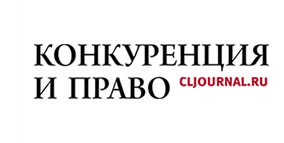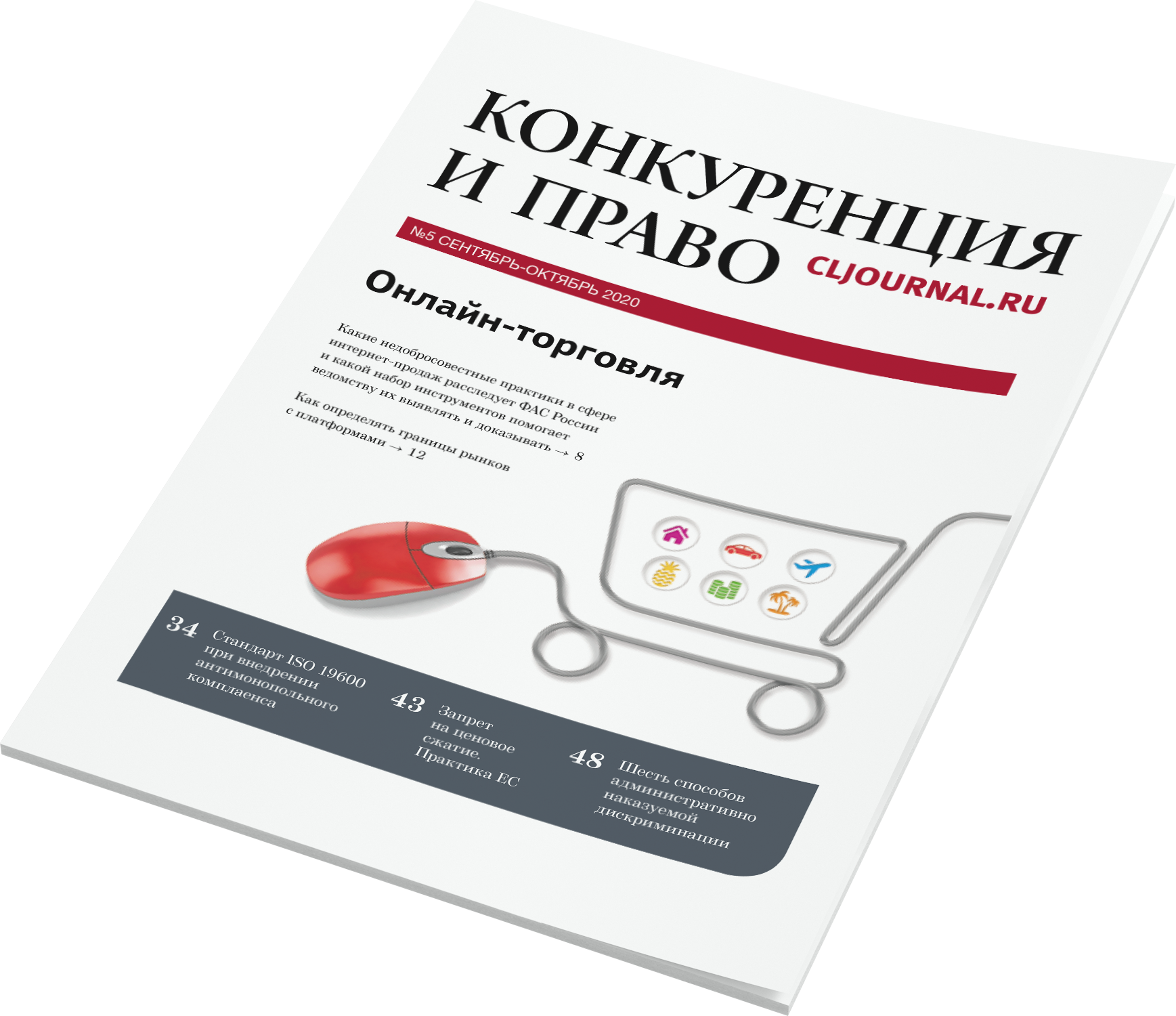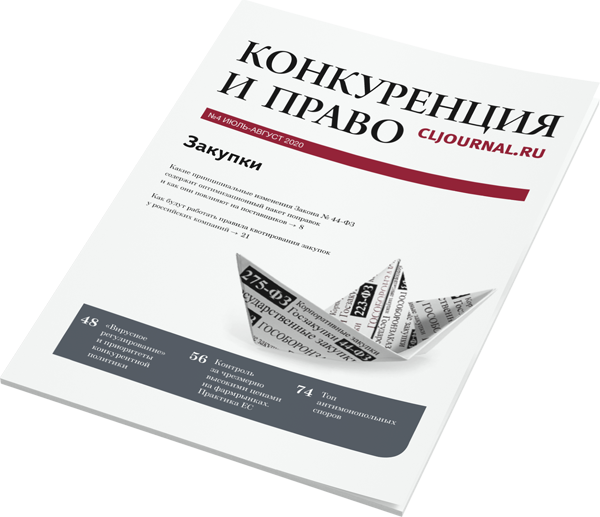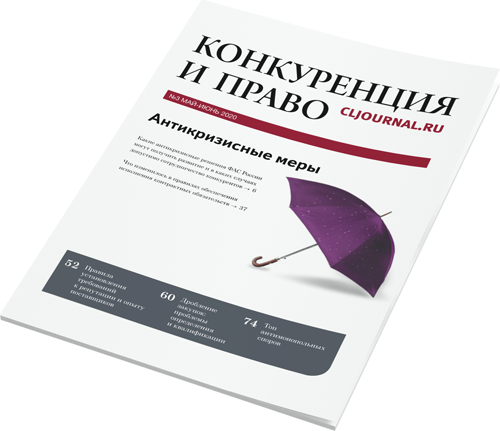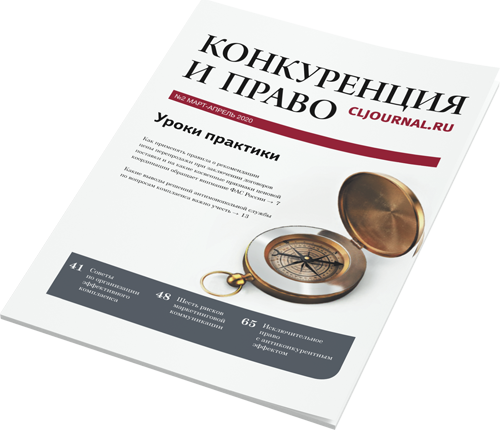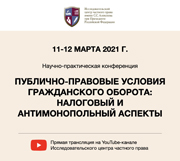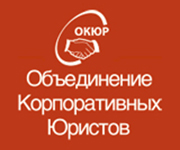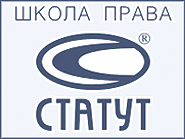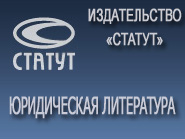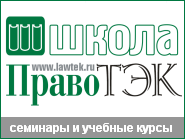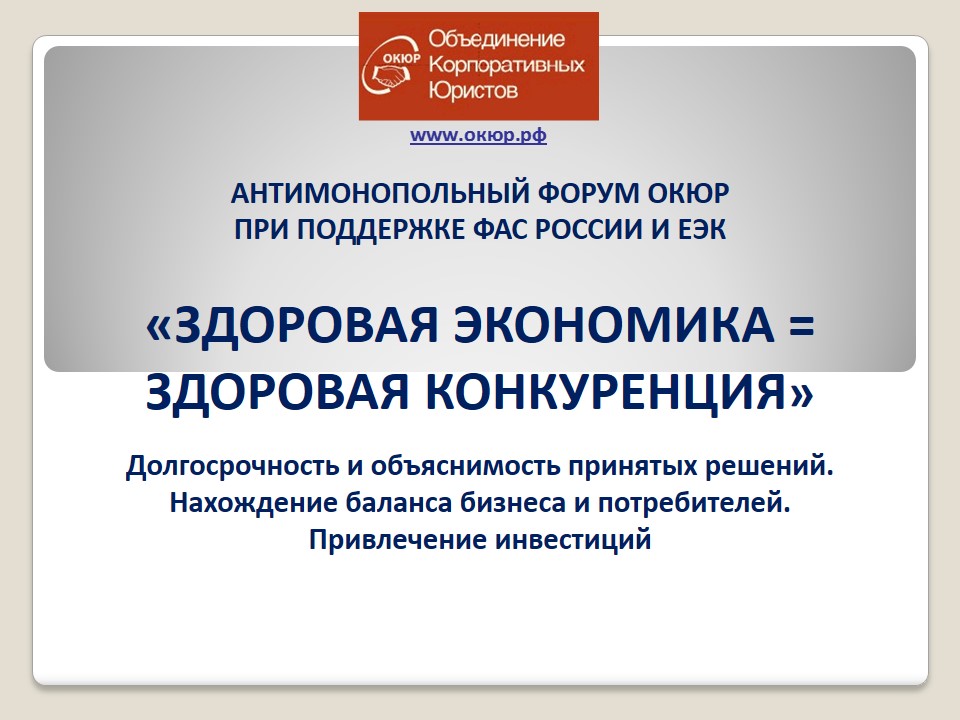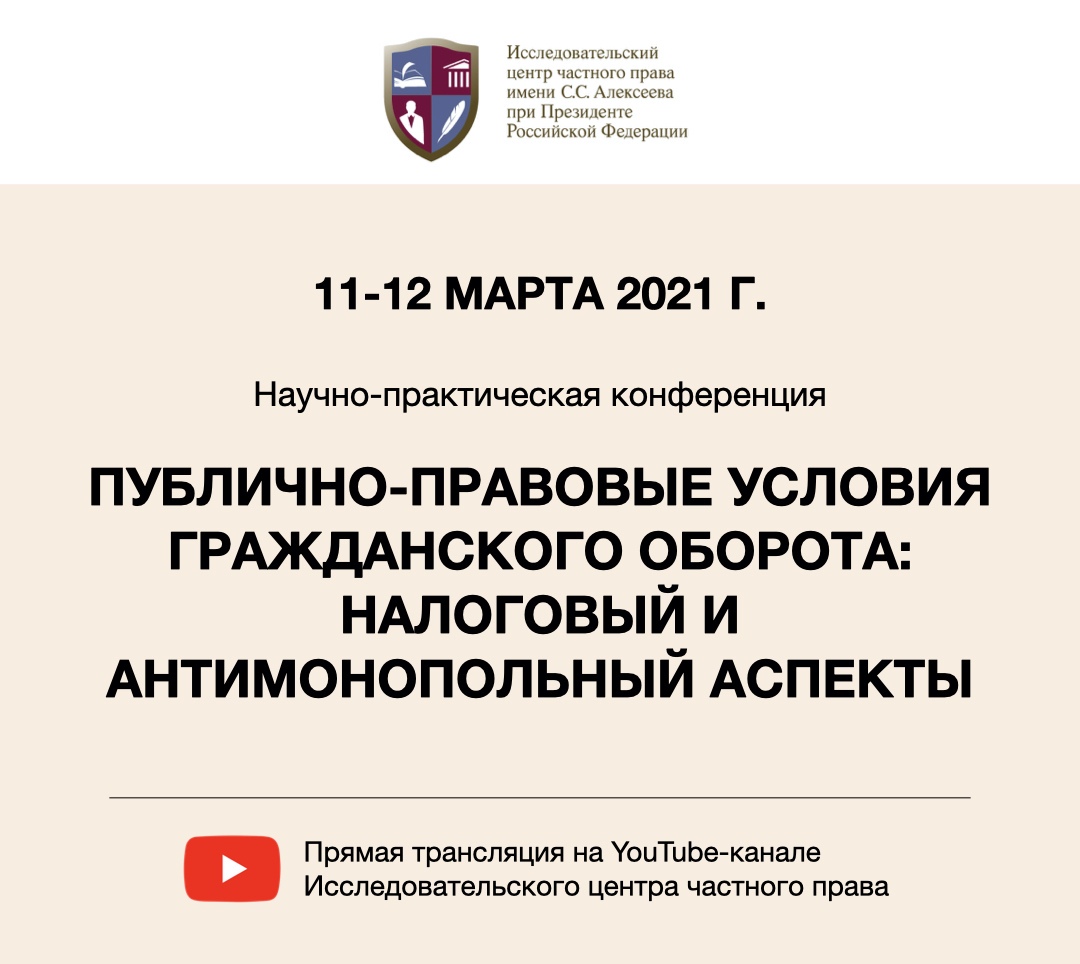|
||||||
 Published in Competition and Law journal,
Issue 1, 2020
Elena Sokolovskaya,
Chief Expert of Competition and Law journal
The antimonopoly service (the “FAS”) has launched a counter-offensive, in terms of both law and methodology, against anticompetitive agreements which are increasingly permeating the state’s strategic and vital spheres, causing enormous damage to the country’s economy. Apart from a far-reaching package of amendments to antimonopoly, criminal and administrative legislation, submitted in late 2019 to the State Duma (the lower chamber of Russia's Parliament), the FAS of Russia has drafted guidelines, to be used in practice by law enforcement authorities, regarding the tactics of conducting investigative actions as part of cartel investigations.
The amendments drafted by the service are to adjust the amount of the penalty imposed for entering into cartel agreements and participating in them with the level of their danger to the public. In addition, the conceptual framework of the relevant articles of the Russian Code of Administrative Offences, the Russian Criminal Code and Federal Law No. 135-FZ “On protecting competition” dated 26 July 2006 will be harmonised. The planned changes in the field of criminal law have caused a massive public outcry among representatives of the business community. Firstly, the anti-cartel package alters the objective element enshrined in article 178(1) of the Criminal Code. It is proposed to eliminate the need for law enforcement bodies to prove the existence of adverse consequences in the form of limited competition since, according to the Law on Protecting Competition, cartels are banned per se. Only the fact that a cartel exists will be established. According to statistics, most unlawful agreements are entered into during bidding processes; therefore, it is suggested that such act be criminalised by adding a new aggravating factor of a crime in article 178 of the Criminal Code with strengthened criminal liability. This rule will only cover statutory bidding processes rather than violations committed during private bidding. Moreover, article 178 will incorporate a separate aggravating factor for companies’ top managers who will be subject to a heftier penalty. This list will include the sole executive body, a member of the board of directors or other collective bodies, and the owner of more than 50% of the voting shares (membership interests). The package of amendments proposes to raise the threshold requirements as follows:it is planned to double the amount for the definition of ‘large’ and ‘especially large’ income and damage caused by a cartel agreement, the presence of which is necessary for an act to fall within the scope of article 178 of the Criminal Code. The FAS of Russia will be vested with new powers. The employees of the service will have the authority to confiscate (seize) documents and items when conducting unscheduled field audits aimed at checking whether the ban on entering into an agreement which contradicts antimonopoly law has been complied with, including during bidding processes, between the participants of a bidding process or between the persons who organised the bidding process (the clients) and the participants. The regulator will also be granted the right to access personal data and information relating to the subscribers of communications services, and the right to obtain materials relating to criminal intelligence operations. This will expand the opportunities of the FAS of Russia in terms of gathering the necessary evidence and increasing the effectiveness of proof, primarily in relation to cartels. Apart from the package of draft laws, the Guidelines for the antimonopoly authority to cooperate with interested law enforcement bodies (approved by Order No. 1073/19 of the FAS of Russia dated 8 August 2019) constitute another new development in the regulation of activities aimed at identifying, uncovering and investigating crimes connected with the restriction of competition (article 178 of the Russian Criminal Code). The service has issued recommendations and even mandatory instructions to investigators, including in relation to criminal intelligence operations, and to other law enforcement bodies concerning tactics for and the content of interrogations, the procedure and requirements for the visual inspection of physical evidence, etc. However, a few questions remain unanswered. Does the competence of the FAS of Russia extend to the adoption of such recommendations for applying the provisions of the Russian Criminal Code and the Russian Criminal Procedure Code? Should investigators understand such document as a recommendation or a mandatory instruction? Who will actually play the leading role in the criminal procedure under article 178 of the Criminal Code: law enforcement bodies or the specialists of the antimonopoly authority? Competition and Law journal will keep track of the directions which law enforcement practice follows, and will, from time to time, revisit the discussion of this.
The anti-cartel package The package which, further to the Russian President’s instruction, the FAS of Russia has been developing for over two years, includes the following draft laws:
07 февраля 2020 г.
|
|

